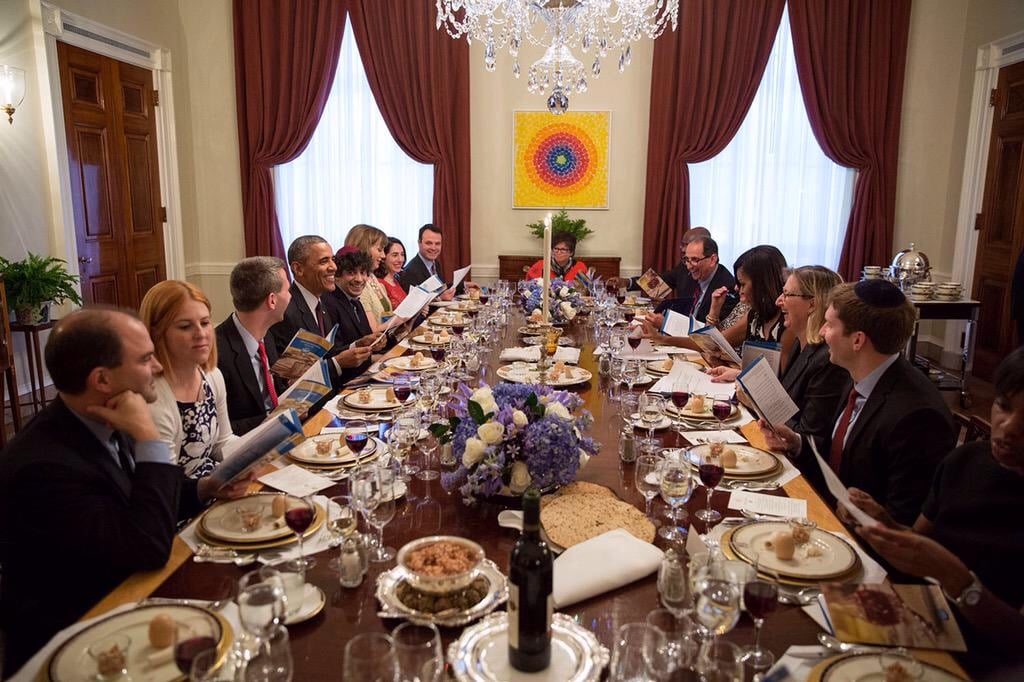
Barack and Michelle Obama may be entering their last year in the White House, but that doesn’t mean its too late for the president and first lady to redecorate. The couple has hung a number of new artworks, bringing a more modern and contemporary edge to the White House art collection.
As one might expect, much of the artwork on the walls over the years has been relatively traditional, in keeping with the building’s stately bearing. But no more: the Obamas have added works by Mark Rothko, Edward Hopper, Sam Francis, Josef Albers, Robert Rauschenberg, and Alma Thomas, among other artists. (Unfortunately, Obama’s visit to Jamaica’s Bob Marley Museum does not appear to have influenced his design choices.)
President Barack Obama looks at the Edward Hopper paintings, Cobb’s Barns, South Truro, top, and Burly Cobb’s House, South Truro, now displayed in the Oval Office.
Photo: Chuck Kennedy, courtesy the White House.
“There was discussion about the president and first lady liking more abstract art,” White House art collection curator William Allman told the New York Times. “Our collection doesn’t really have any of that.”
Instead, the permanent White House art collection leans more toward presidential portraits, classical landscapes, and dramatic paintings. (No word on whether they’ll try acquire Rob Pruitt‘s ambitious ongoing series in which he has painted a portrait of Obama every single day of his presidency.)
The Obamas have retained the White House’s focus on American art, but have taken down some less-than-exciting portraits of long-dead first ladies, swapping out Edith Roosevelt and Frances Folsom Cleveland for Albers, Rauschenberg’s 1993 painting Early Bloomer [Anagram (A Pun)] and Thomas’s 1966 work, Resurrection, in the family dining room.
Paintings by Alma Thomas and Robert Rauschenberg in the White House family dining room.
Photo: Amanda Lucidon, courtesy the White House.
Several of the new additions to the presidential residence are thanks to museum loans, which allowed the couple to diversify. Two paintings by Hopper were added to the Oval Office thanks to the Whitney Museum of American Art.
New York’s so-called “Little White House,” Gracie Mansion, also recently unveiled an updated art collection, but where the Obamas went contemporary, Bill de Blasio and Chirlane McCray went historical, opting to revisit the building’s 1799 roots through a more inclusive lens, which includes Native American tools and a loaned copy of “An Act for the Gradual Abolition of Slavery” from the New York State Archives.
One thing both redecorating jobs have in common is a focus on broadening and deepening the historical record on view, to better reflect the nation’s diversity.